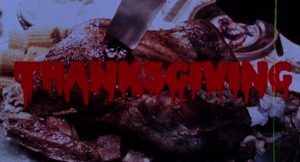I tried to discovery write my way through my first two National Novel Writing Months, but failed both times. It wasn’t until my third attempt that I committed to the change that made the difference. For years, my friends and mentors tried to tempt me into outlining, promising mad productivity gains, stronger stories, and less time spent drudging through the editing phase. I resisted because I was convinced that outlining would ruin the joy of creation, dampen the rush I got through discovering my story and my characters. But between you and I? The real reason was because I had no idea how to outline effectively.
Every other time I tried outlining, I started by listing plot points. What I didn’t realize was that I was stacking up two-by-fours and hoping to end up with a house. My first major challenge was to realize that I needed to instead start with the big picture.
Story and plot are not the same thing. The plot is what the character does, the story is what the plot does to them. The plot of Star Wars: A New Hope starts with a boy who grows up on a moisture farm before running away with a space wizard, two droids, and a pair of smugglers. They are captured, and during his escape, the boy saves a princess before fleeing the Empire. They all join the Rebellion and our hero ends up blowing up a weapon of ultimate destruction and evil. The movie’s plot takes 67 words and 3 sentences to describe. The story can be stated much more simply. Star Wars: A New Hope is about a boy who comes from humble beginnings only to discover that he has the ability to change his world by standing up to a great evil. 33 words, 1 sentence.
If that’s not a familiar story, you haven’t been consuming much fiction. Frodo from Lord of the Rings, the titular character of the Harry Potter series, and even Simba from Disney’s The Lion King all experience the same story. Truth be told, humans have been telling each other the same stories for most of our history. Keep it simple and find a story that will resonate with your readership. This will be the foundation for your outline.
My next breakthrough came when I took Dave Farland’s Story Puzzle class. I learned that I needed to build my story like I would build a house, by starting with the studs and working my way out. A plot’s studs are its scenes, and scenes are nothing more than goals paired with failures that lead to an eventual success. Understanding your story’s try-fail cycles means that you need to dig down into your characters’ motivations. How is your protagonist going to respond to the initiating event, both emotionally and then through action? How is that reaction going to interfere with the antagonist’s designs and how is that character going to respond? Rinse, and repeat. Once you understand what your protagonist and antagonist want and how they’ll go about getting it, the rest falls into place.
So, after much work I had a functional outline, by far the best I had ever written. I started my third NaNoWriMo attempt. I was only days in before I found a plot problem. It wasn’t a big plothole, but enough of a stumbling block that I missed my daily goal. In the past, I would have agonized and insisted on filling the hole before being able to move on. However, the next day I started my writing session by typing, “<<Assume my character accomplishes her goal, she disarms the bomb and saves her friends.>>” I then opened a new scrivening and started writing my next scene. The beauty of the outline was that I didn’t need to discover the end of the scene. It was all planned out, I could move on and come back to fix it later.
Things were going well, I was reaping all the benefits that my friends and mentors had promised me. I was cruising along, exceeding my daily word counts. Then one day I had an idea. It was good enough that it was worth changing my whole outline. This was my third challenge. I was worried that my discovery writer past was catching up with me, that I was going to ditch my novel’s blueprint and would end up wasting all the time I had saved and all the progress I had made. Rather than starting to knock down the walls I had already built, I took a few days off of writing and reworked my outline mid-NaNoWriMo. It seemed crazy to do, but the idea was just that much better than what I had planned before.
The outline may have been my book’s blueprint, but I wasn’t committed to following every detail. It was there to help me visualize the whole structure of my novel and decide where my renovations fit in. I knew which walls were load bearing, where all the piping was run, and how the rooms would flow one to the other. Because I understood the totality of what I was trying to build, I could honestly and objectively decide if my new idea was better. I went back to writing with a newly revised outline and I ended up finishing strong, winning my third NaNoWriMo attempt.
Though I have been wooed into becoming an outliner, I still find ways to discover. It hasn’t taken away from the thrill, but rather increased the satisfaction of a story well crafted. This month on the Fictorians, you’re going to hear from many writers about their own experiences with prewriting and the techniques that allow them to keep up the grueling NaNoWriMo pace. If you are an experienced NaNo’er, welcome back. If you are a newbie who is considering taking on the mountain for the first time, welcome to the family. We have 30 days left to build our base camps, folks. Will you be ready to start the climb?



 I’ve only done NaNoWriMo twice, but I have some tips for success so that you won’t feel overwhelmed during November.
I’ve only done NaNoWriMo twice, but I have some tips for success so that you won’t feel overwhelmed during November.
